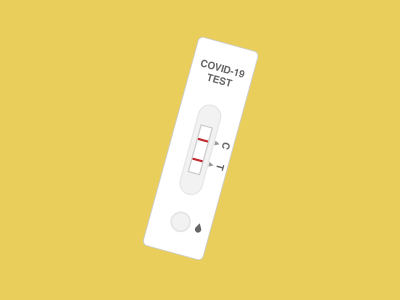Covid Care in the Community
Most healthy people who have COVID-19 can safely self-manage at home. However, help is available. If you are unwell or your symptoms worsen, contact your usual health provider such as your GP or Healthline's COVID number 0800 358 5453.
If it's an emergency, dial 111.
Please note that you may need to pay for COVID-19-related visits to your healthcare provider.
Antiviral Medication
COVID-19 antiviral medicines are available to treat eligible people with COVID-19 at home. Please consult with your GP or pharmacy to see if you are eligible. You can check the eligibility criteria here.

Testing
Rapid Antigen Tests (RATs)
Rapid Antigen Tests (RAT tests) are the primary method of testing. RAT tests are available free of charge and their easy accessibility means people can test and get results more quickly, helping reduce the spread of the virus.
PCR Testing
PCR (polymerase chain reaction) testing is used in some situations. Please check with your General Practice for further advice.
When to Test
For the most up to date advice on when to test visit: How to get a COVID-19 test in New Zealand | Unite against COVID-19 (covid19.govt.nz)
Pre-departure COVID-19 tests
Some countries require you to have a negative COVID-19 test before travel. You will need to pay for a test if it is for the purpose of entering another country. For more information see Pre-departure COVID-19 Tests.
Testing Sites
For the most up to date information on where to get tested:
Reporting Your Test Result
If you test positive with a RAT test you do not need to have that confirmed by PCR
Your test result - positive or negative - should be reported. Please update your My Covid Record https://mycovidrecord.health.nz/ with your result. Call 0800 222 478, option 3, if you need any support to do that.
For more information on reporting your test – How to get a COVID-19 test in New Zealand | Unite against COVID-19 (covid19.govt.nz)
If Your Test is Positive
Once you have reported your result, you will receive a text notification from either 2328 or 2648 (within 24 hours) confirming the Covid positive result - and you will need to complete an online form in the link you receive in the text message as soon as possible. This will ensure you have access to the appropriate care and support when you need it.
There is no longer a requirement to isolate but it is advised that if you test positive to stay home for 5 days. Please wear a mask if you leave the house.
For more information on what to do if you have COVID-19 If you have COVID-19 | Unite against COVID-19 (covid19.govt.nz)
RAT Collection Sites
Masks and RAT tests are available for free. You do not need to pre-order your tests or have a collection number. If you are unwell, please ask a family member, whānau, or a friend to collect these for you.